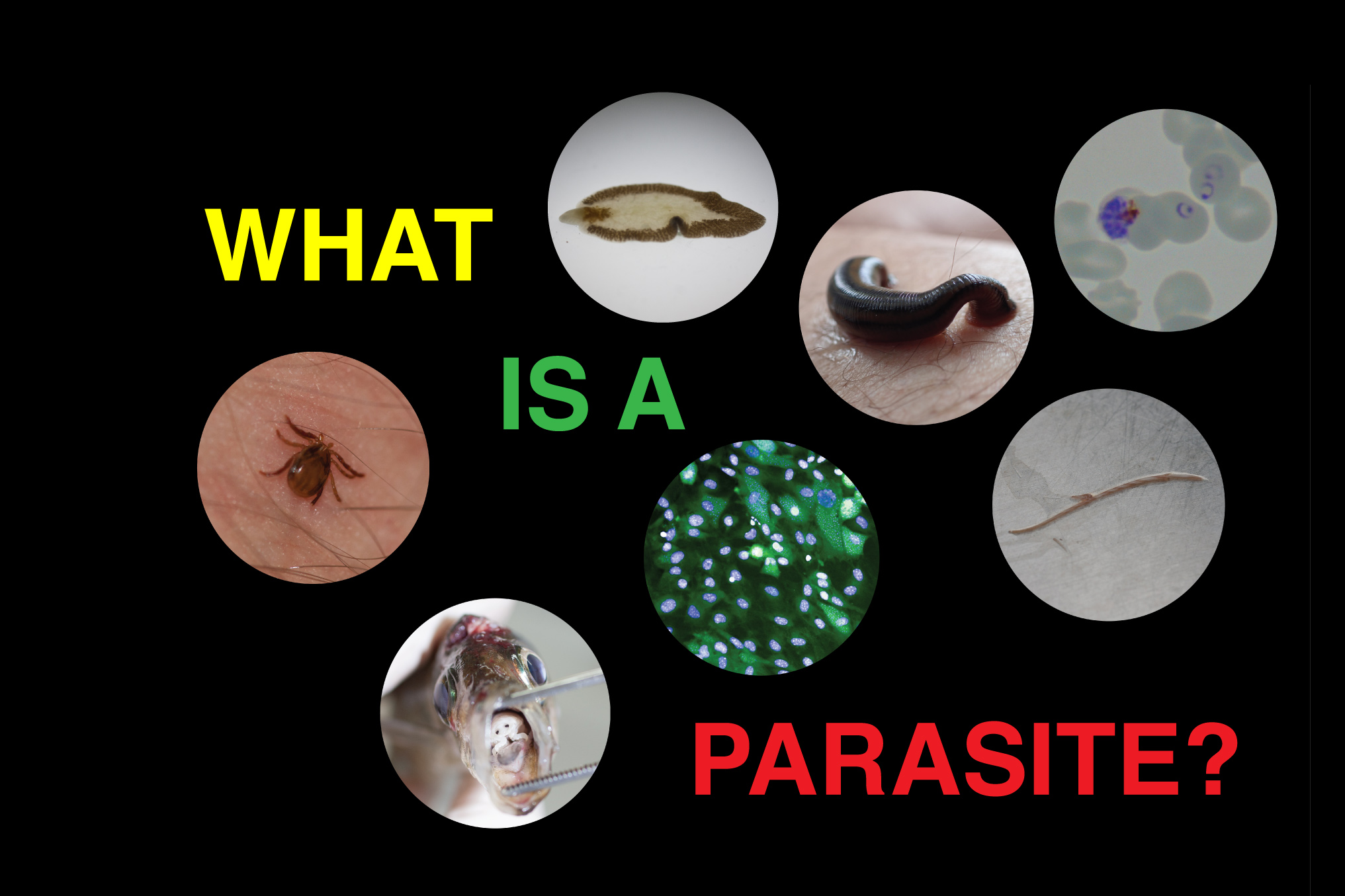What is a parasite?

Having completed one week of the ANU undergraduate course “Appreciating parasites”, Iʼve encountered a diverse array of parasites from nematodes to wax moths and have been exposed to different perspectives on parasites and their ecological roles. Nonetheless, I was surprised to find that the question “What is a Parasite?” was not as clear-cut as I expected.
In our initial introduction to parasites, parasitism was defined as a mode of existence wherein the parasite infects the host and benefits at its expense. Some of the premises underlying this descriptor include that hosts suffer detriment as a consequence of being parasitised, and that host-parasite relationships are intimate and sustained. In addition, parasites are generally considered distinct from other pathogens (such as bacteria and viruses) by nature of being eukaryotic. Every one of these concepts has been challenged during the course of the week.
Parasites and hosts have intimate, sustained relationships
This was stated as a necessary prerequisite for parasitism. A mosquito, for example, is not usually considered a parasite because it does not have a proximate relationship with the organisms from which it takes a bloodmeal. This becomes confusing, however, when we consider the interaction of ticks and leeches (established parasites) with their hosts. Ticks, leeches and mosquitoes detach from their victims after taking a bloodmeal, and all require this sustenance to complete their life cycles. Ticks can remain attached to a human host for 10 days (a small fraction of their three-year life spans) whereas leeches usually complete feeding and detach within an hour. Why is a 60-minute interaction “sustained and intimate”, but the interaction with a feeding mosquito that lasts only a few minutes not? What is the value of this distinction?
Parasites are eukaryotes
The word parasite is often used to refer to any organism that infects and causes harm to another. Naturally, then, there is continued debate about whether all pathogens should be classified as parasitic. In certain contexts it is difficult to see a substantial distinction between bacterial, viral, and eukaryotic pathogens. Each organism (or virus) exploits the host to survive and replicate. Hence, I can understand the broader use of the word “parasite” in some contexts.
Parasites affect individual hosts
An introduction to the parasites of social honeybees added yet another dimension to the conflicting aspects of the parasite definition. Hive parasites, such as wax moths and hive beetles, cannot subsist on a single, individual bee. Rather, they parasitise the colony. The parasitism is therefore not of an organism, but of a population. As an evolutionary response, the hive as a whole attempts to drive out invaders. Therefore, the relationship here appears to be between a parasite and a community, rather than a parasite and a single host.
Hosts suffer detriment
In my previous encounters with behavioural ecology, I have also learnt about parasites in the context of brood parasitism (primarily in fish and birds). These parasitic relationships also subvert the expectation that a parasite harms its host organism. If an organism affects a hostʼs reproductive potential without directly harming the individual, can it be a parasite?
Food for thought


How we define a “parasite” affects the way we understand host-parasite relationships. This has implications for research, public health and industry (e.g. in cases where host species, like honeybees, are commercially valuable). It is apparent, however, that what is considered a parasite can differ between disciplines. How should we respond to these ambiguities and conflicts? Is a homogenous understanding of what a parasite is necessary?
- Tunan (Nicole) Yu (ANU Undergraduate student) in collaboration with Dr. Christina Spry
Read more about Parasites: the Good, the Bad and the Ugly.
